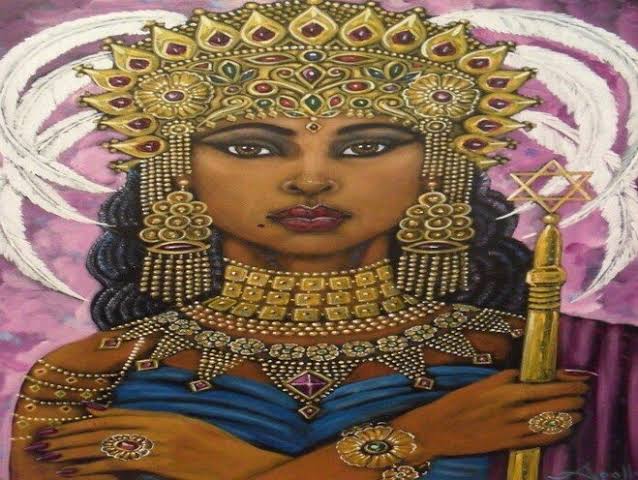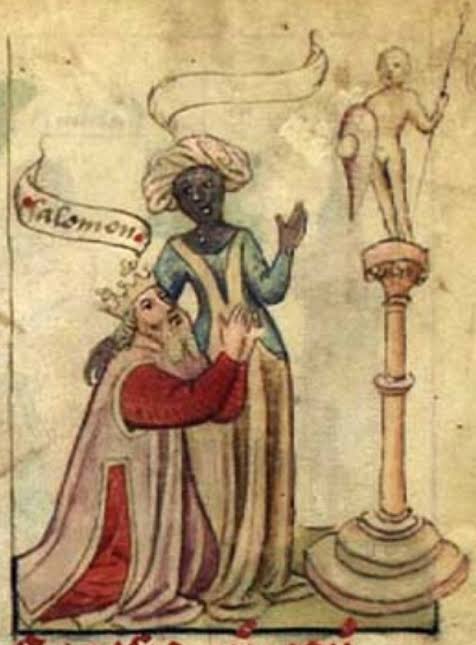The Queen of Sheba is a captivating figure of ancient history, renowned for her legendary power, wisdom, and beauty. She is believed to have ruled over the prosperous kingdom of Sheba, located in what is modern-day Ethiopia. This enigmatic queen has fascinated scholars, historians, and storytellers for centuries, leaving behind a legacy that continues to intrigue and inspire. In this article, we will explore the life, achievements, and enduring influence of the Queen of Sheba, shedding light on the historical and cultural significance of this remarkable ruler.
To understand the Queen of Sheba’s significance, it is essential to delve into the historical context of her time. Sheba, also known as Saba, was a kingdom located in the southern Arabian Peninsula and the Horn of Africa. It flourished during the first millennium BCE, with its capital believed to be in present-day Ethiopia. This region was renowned for its wealth, trade routes, and strategic location, making it a significant player in the ancient world.
The kingdom of Sheba was strategically positioned along the Red Sea, allowing it to control key trade routes between Africa, Arabia, and the Mediterranean. This advantageous location facilitated the flourishing of trade networks, enabling the kingdom to amass great wealth and influence. The Queen of Sheba’s rule coincided with a period of economic prosperity and cultural exchange, further enhancing the kingdom’s prominence.
Origins and Lineage Of The Queen Of Sheba
The Queen of Sheba’s origins are shrouded in myth and legend, making it challenging to ascertain her precise lineage. According to Ethiopian tradition, she was born Makeda, meaning “beautiful one.” She was said to be the daughter of a mortal king and the sun god Apollo, giving her divine lineage. Other accounts suggest that she was the daughter of a local chieftain or a descendant of the biblical King Solomon and the Queen of Sheba.
Regardless of her exact lineage, the Queen of Sheba’s ancestry played a significant role in shaping her reputation. Her divine heritage and regal lineage contributed to the allure and mystique surrounding her rule, elevating her status as a powerful queen.
Meeting with King Solomon
One of the most famous tales associated with the Queen of Sheba is her meeting with the biblical King Solomon. The story goes that she embarked on a long and arduous journey to visit Solomon, drawn by his renowned wisdom. Impressed by Solomon’s wisdom and wealth, she tested him with riddles and was amazed by his ability to solve them. Their encounter resulted in a deep connection and a trade agreement between their kingdoms.
The meeting between the Queen of Sheba and King Solomon has been the subject of various interpretations and adaptations throughout history. The biblical accounts describe the queen’s journey to Jerusalem, her interactions with Solomon, and the exchange of lavish gifts. This encounter served as a testament to the queen’s own intelligence and diplomatic skills, solidifying her reputation as a formidable leader.
Trade and Prosperity
The Queen of Sheba was known for her kingdom’s flourishing trade networks, which played a crucial role in its prosperity. The kingdom of Sheba was an important hub for the trade of precious spices, gold, ivory, and exotic animals. Its strategic location along trade routes facilitated the exchange of goods and ideas, attracting merchants from various regions.
Under the Queen of Sheba’s leadership, Sheba became a prominent player in the ancient trade network, accumulating vast wealth and establishing strong economic ties with neighboring kingdoms. The kingdom’s prosperity was not only a result of its abundant natural resources but also the queen’s astute economic policies and her ability to foster a favorable trade environment.

Architectural and Cultural Achievements
Under the Queen of Sheba’s rule, her kingdom witnessed a remarkable flourishing of architecture and culture. The ancient city of Aksum, believed to be the capital of Sheba, boasts impressive structures such as the obelisks and the ruins of ancient palaces. These architectural marvels serve as a testament to the advanced engineering skills and artistic sensibilities of the time.
The kingdom of Sheba embraced a vibrant artistic tradition, producing intricate carvings, paintings, and pottery. The Queen of Sheba’s patronage of the arts and her promotion of cultural exchange further enhanced the reputation of her kingdom as a center of creativity and refinement. The artistic achievements of Sheba during her reign continue to captivate scholars and provide valuable insights into the cultural richness of the period.
The Queen of Sheba’s Religious Legacy
Her encounter with King Solomon had a profound impact on her religious beliefs. Ethiopian tradition holds that she converted to Judaism and brought the Ark of the Covenant, containing the Ten Commandments, back to her kingdom. This event is believed to have laid the foundation for Ethiopia’s rich Judeo-Christian heritage.
The Queen of Sheba’s conversion to Judaism and the subsequent introduction of the Ark of the Covenant into her kingdom had far-reaching implications. It solidified the ties between Sheba and the biblical traditionsthat originated in Israel, establishing a religious and cultural connection that would shape Ethiopia’s history for centuries to come. The Ethiopian Orthodox Church considers the Queen of Sheba a significant figure and maintains that the Solomonic dynasty, which ruled Ethiopia for centuries, descended from her union with King Solomon.
Legacy and Influence
The Queen of Sheba’s reign and influence extended beyond her own kingdom. Historical accounts suggest that she maintained diplomatic relations with neighboring kingdoms and established alliances that strengthened her position in the region. Sheba’s interactions with other ancient powers, such as Egypt and Assyria, contributed to the cultural and political exchange of ideas, further enhancing the kingdom’s prestige.
Furthermore, the Queen of Sheba’s story has been a subject of fascination and interpretation in various religious and cultural traditions. In addition to the biblical and Islamic accounts, her legend has found its way into Ethiopian folk tales, where she is celebrated as a symbol of wisdom, beauty, and female empowerment. These stories have contributed to the development of a rich oral tradition that has preserved her legacy throughout generations.
The Queen of Sheba’s impact on trade and commerce cannot be overstated. The kingdom of Sheba’s control over valuable resources and strategic trade routes allowed for the accumulation of vast wealth. This wealth, in turn, fueled the growth of cities, the construction of impressive architectural structures, and the patronage of art and culture. The Queen of Sheba’s economic acumen and support for the arts played a significant role in the flourishing of Sheba’s civilization, leaving a lasting legacy that can still be witnessed in the archaeological remains of ancient sites.
The Queen of Sheba’s legacy extends far beyond her lifetime. Her story has captured the imagination of countless generations, inspiring literature, art, and music from various cultures. The biblical account of her meeting with King Solomon is described in the Old Testament, specifically the Books of Kings and Chronicles. In Islamic tradition, she is known as Bilqis, and her story is mentioned in the Quran.
The Queen of Sheba’s image has been depicted in numerous artworks, ranging from ancient frescoes to modern paintings. Her legend continues to be celebrated in Ethiopia through festivals and cultural events. The city of Aksum, with its ancient ruins and rich historical significance, attracts tourists and researchers alike, eager to explore the remnants of the Queen’s kingdom.

Beyond her cultural impact, the Queen of Sheba’s story serves as a testament to the power of women in positions of authority and the enduring impact they can have on society. She defied societal norms of her time, ruling with wisdom and diplomacy, and leaving a lasting mark on history.
The Queen of Sheba remains an enduring and influential figure in the annals of ancient history. Her intelligence, wealth, and leadership abilities have left an indelible mark on the collective imagination. While historical details about her life may be elusive, the cultural and religious significance she holds in Ethiopia and beyond is undeniable.
The Queen of Sheba’s tale serves as a reminder of the thriving civilizations that existed in ancient Ethiopia and the Horn of Africa, contributing to the richness of world history. As we continue to uncover the mysteries of the ancient world, the enigmatic Queen of Sheba will forever occupy a place of admiration and fascination. Her legacy reminds us of the power and influence of remarkable individuals, transcending borders and leaving an enduring impact on the tapestry of human civilization.
In conclusion, the Queen of Sheba’s historical significance as a powerful ruler, a patron of culture, and a figure of inspiration cannot be ignored. Her story continues to captivate and intrigue, transcending time and geography. The Queen of Sheba’s influence on trade, religion, and cultural exchange highlights the interconnectedness of ancient civilizations and the enduring impact of exceptional leaders. She remains an enigmatic and revered figure, representing the strength, intellect, and cultural richness of ancient Ethiopia.

